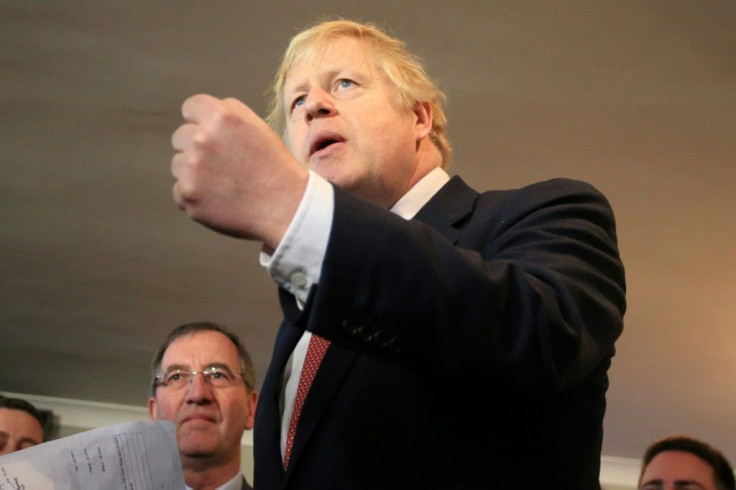More Trade Wars? British Prime Minister Boris Johnson To Threaten US, EU With Tariffs To Speed Up Trade Deals

British Prime Minister Boris Johnson may use the threat of tariffs to force the U.S. and European Union to pursue trade deals with Britain, the London Times reported Saturday. The U.K. is set to leave the EU on Jan. 31, with the country needing new trade agreements to help it navigate the global economy.
The Times said that Johnson could use 30% tariffs on French cheese and 10% duties on German cars in order to push the EU towards a new deal. If Johnson decides to pursue such a strategy, it could cause the EU or U.S. to retaliate with tariffs or measures of their own.
Experts have expressed skepticism that the U.K. can soon achieve a comprehensive trade agreement.
“It is more than a daunting task,” Lourdes Catrain, a partner at the law firm Hogan Lovells in Brussels, told the New York Times. “I am not saying it is impossible, but I am saying that it requires a lot of resources and very clear policies.”
The U.K. and the U.S. hope to have a stronger trade relationship post-Brexit. U.S. Treasury Secretary Steven Mnuchin has said that he is “quite optimistic” about reaching a trade deal with the U.K. this year.
At the same time, the U.S. is unhappy with a proposal by the U.K. to implement a 2% digital tax on big tech companies. Digital taxes in France and Italy have previously angered the Trump administration, as they tend to overwhelmingly target U.S. tech companies such as Amazon and Google.
Johnson may be getting his tariffs strategy from President Trump, who has waged a trade war against China. Trump has implemented tariffs on Chinese goods, which he believes would revive U.S. manufacturing.
The U.S. and China recently signed a “Phase 1” trade deal, which would see the U.S. suspend tariffs in exchange for Beijing buying $200 billion of American goods over the next two years.
© Copyright IBTimes 2025. All rights reserved.




















